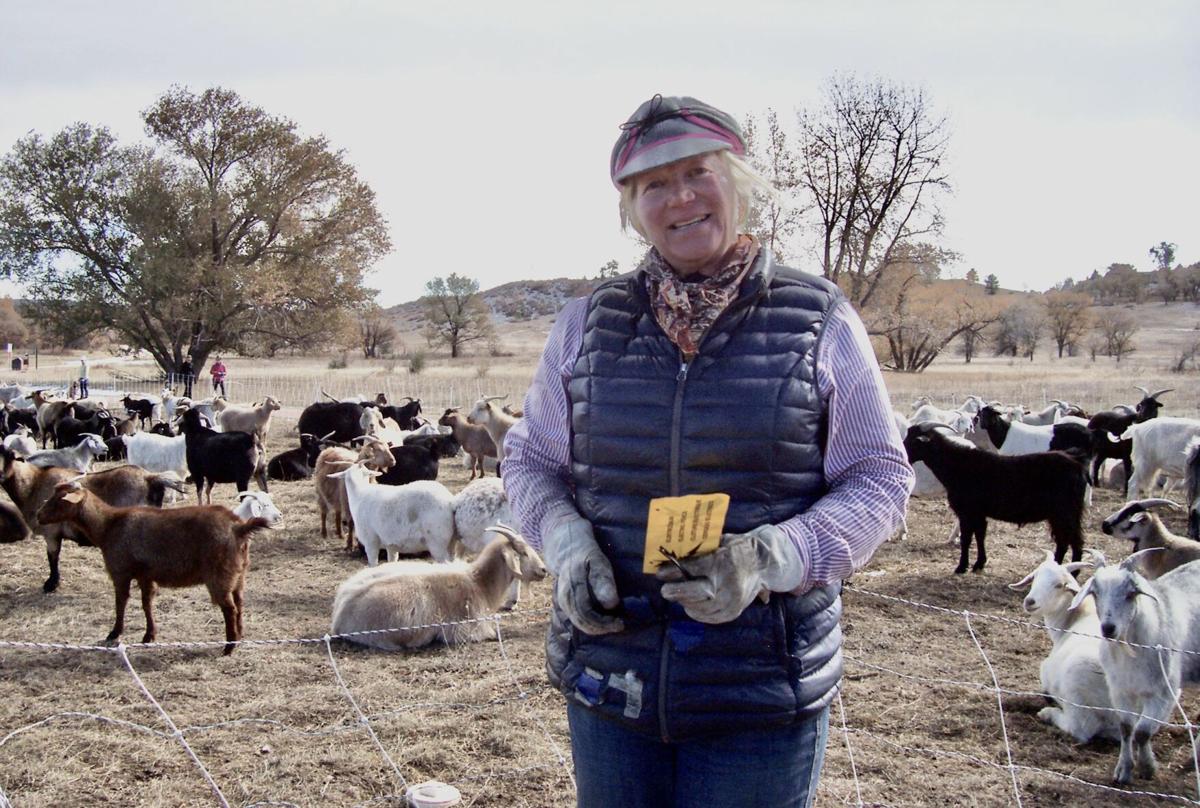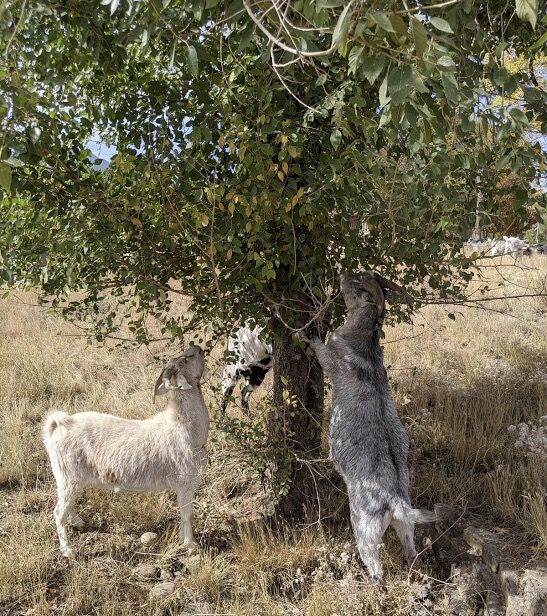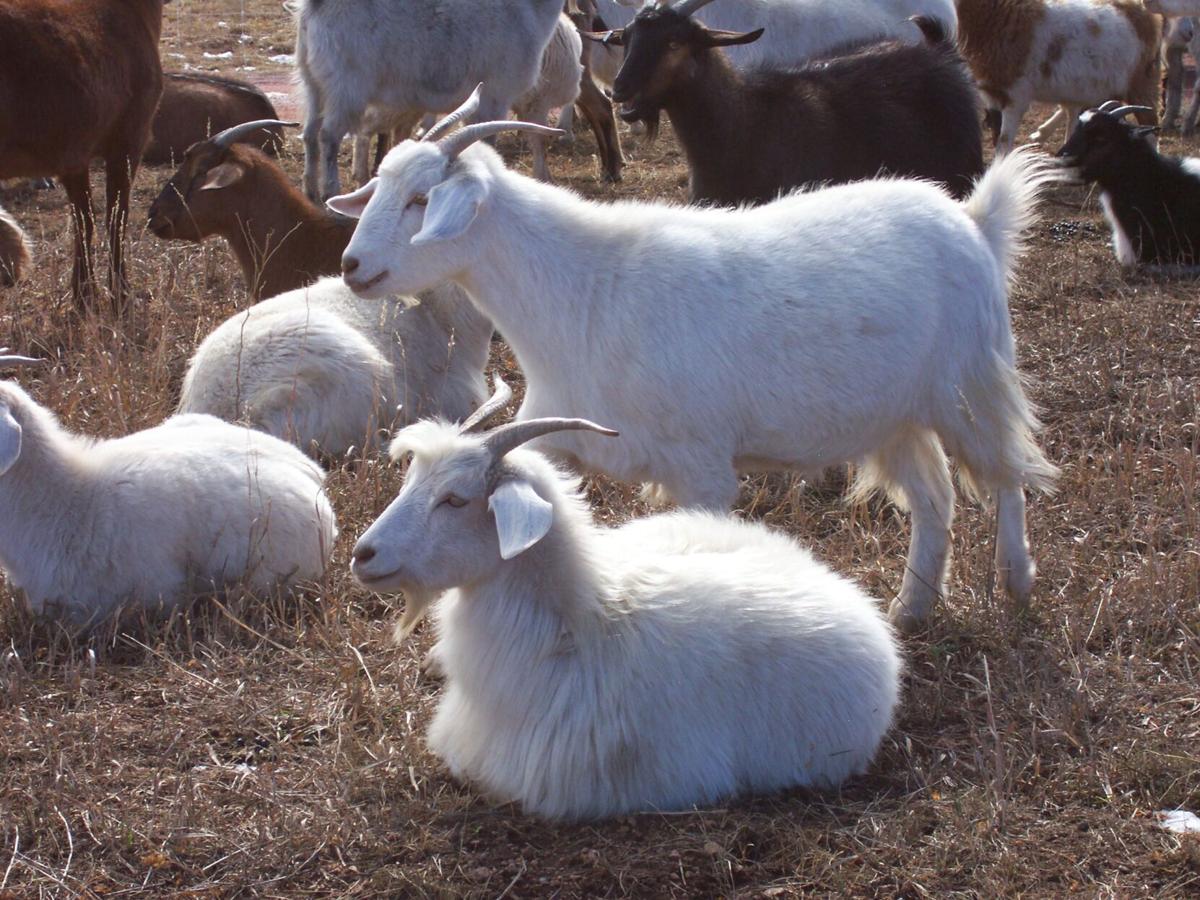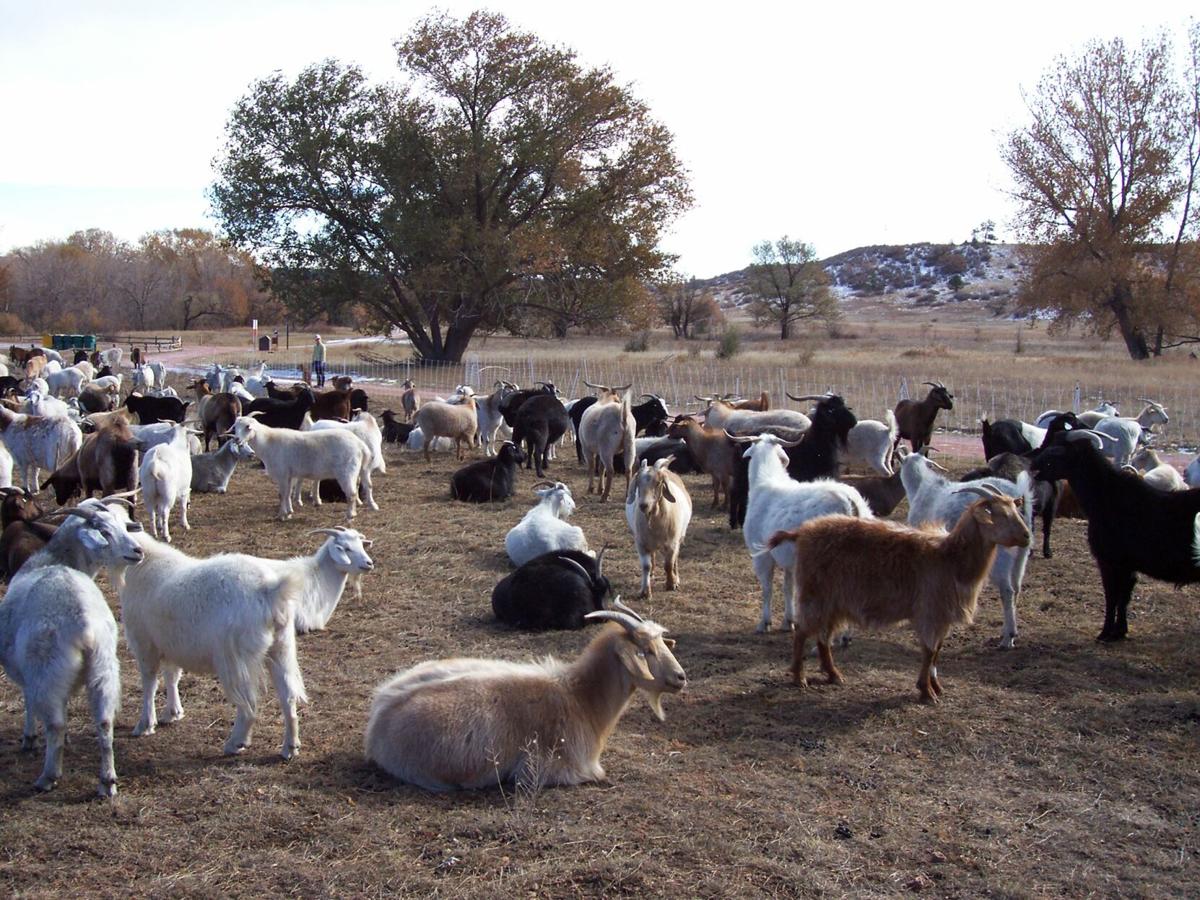Organic gardening: Weed-eating goats are employed to tackle noxious weeds in Pikes Peak region park
LIBBY KINDER Nov 3, 2020

Border Collies Rosco and Betty have an important job to do, and they are experts at herding goats. For 22 years Lani Malmberg’s herd of Spanish cashmere goats has been coming to Bear Creek Regional Park on the southwest side of Colorado Springs to do their own important job.
Every fall around 350 goats industriously eat their way through 20 acres of noxious weeds, add their personal fertilizer to the soil and churn up the ground with their hooves.
Professional grazier and owner of several goat herds, Lani Malmberg is a passionate voice and educator against the use of chemicals to control weeds.
“It is important for people to understand how to take care of the land. It’s what supports all of us and gives us all of our food, water, and space,” Malmberg said. “We have been disrespectful with how we treat the land, and we need to change that!”

Several weeks ago, Malmberg’s goat herd arrived in Colorado Springs via truck, and dogs Rosco and Betty skillfully shuttled the animals into their electric fence enclosure to begin munching on and excreting the weeds that flourish in the park. The dogs love to work, as this is what they were bred for and trained to do.
Several times a day, the fence is moved until the goats have eventually eaten the entire 20 acres of weeds.
“I bring the wild to the city,” says Malmberg.
While tending her herd, she is a prodigious ambassador for taking care of the land without herbicides and machinery.
Many people look forward to the arrival of the goats. During visits, they ask Malmberg endless questions. She patiently explains why the goats are here and the advantages of having them return yearly.
Temperatures dipped to around 5 degrees and up to 8 inches of snow fell on Oct. 26, but the goats still showed up to work.

They have no problem keeping warm as they have thick, insulating undercoats and lengthy guard (top) coats. During the storm, they sheltered under a grove of trees, where they were protected from the wind.
Malmberg explains that each of the goats has its own unique personality. Goats are extremely intelligent, she said. They watch and figure things out, and are smarter than cattle or sheep. Cashmere goats are quite nimble, frequently standing on their hind legs to eat tree vegetation and sometimes even climbing trees to get to fresh leaves.
“We are a team,” Malmberg said about the relationship between herself, the goats and her dogs. The herd has a joyful energy. Family units — and 26 generations of goats — have returned to Bear Creek over the years. Some of the goats have been back more than 10 years in a row.
Malmberg carefully breeds her goats so there is no inbreeding. They are strong and healthy. Their diet is supplemented with salt blocks containing trace minerals. Seasonal treats include old jack-o’-lanterns (pumpkins) and dried Christmas trees.
Fortunately, Malmberg said, most people are polite and inquisitive when visiting the goats.
Malmberg finds her job to be intense at times, but she unhurriedly and graciously answers the repetitive questions.

Dogs off-leash in the park are a continual source of agitation and are dangerous for the goats. Malmberg noted that two equestrians who are accompanied by dogs running loose are frequent visitors to the park. Another visitor, who had an aggressive dog off-leash, exclaimed: “Well, your dogs aren’t on a leash!” Malmberg calmly explained that Rosco and Betty are constantly working to manage the herd. Colorado Springs does have a leash law, and in recent years this ordinance has been increasingly enforced, which certainly is advantageous to Malmberg and her livestock.
COVID-19 and the Colorado wildfires have had a negative effect on Malmberg’s business. After leaving Colorado Springs, her plan is to take the herd to areas near Boulder, Estes Park, and then Castle Rock. This year she has had to deal with many canceled contracts. Malmberg manages and owns several other goat herds that are facing similar problems in the southwest United States.
Despite recent setbacks, Malmberg continues to advocate for her very important mission.
“We need grassroots people and government policy to change, and take care of our land and water getting back into balance,” she says.
Bear Creek Regional Park has taken positive steps by using this “organic” alternative method for weed control while providing the public with an intriguing annual event to look forward to.
Donations to continue to bring the goats back yearly can be made to the Bear Creek Garden Association, bearcreekgardens.org.
Originally published The Tribune.
